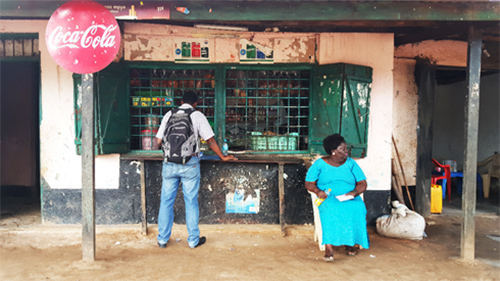International network explores the economics of noncommunicable diseases
When asked about the leading causes of death in low- and middle-income countries, Americans may imagine men and women dying from HIV, malnutrition, or infectious diseases. Yet in nearly 90% of countries, people are more likely to die prematurely from a noncommunicable disease (NCD) like heart disease, cancer, or diabetes than from infectious or nutritional conditions. Changing social, economic, and structural factors such as rapid urbanization and the globalization of unhealthy lifestyles have fueled a global crisis of NCDs that kills 15 million people under the age of 70 each year.
NCDs lead to high healthcare costs, productivity losses, the need for long-term care, and strained economies. However, there are effective ways to combat the rise of NCDs. Investments in effective NCD prevention and control could result in millions of premature deaths averted and billions in economic output gained. Addressing NCDs not only supports sustainable development goals but also enhances global economic and health security.
The International NCD Economics Research Network, a global coalition of academic, governmental, and nongovernmental researchers co-chaired by experts at CDC, RTI International, and the University of Illinois at Chicago, produces and shares peer-reviewed evidence on the economic impact of NCD prevention and control programs and policies, informing NCD strategies globally. The network also develops tools and supports capacity building for conducting costing evaluations of NCD interventions.
Translating Evidence into Impact
With the growing need for an expanded evidence base, the network first convened in 2016 and shortly after published a supplement in the journal Preventive Medicine entitled “Noncommunicable Disease Risk Factors in Developing Countries: Policy Perspectives.” The collection highlighted economic research on policies that influence NCD risk factors.
“The first supplement from network researchers was a success in connecting modelers, end-users, and policy-makers and in driving conversation around translating evidence into impact,” explains Muhammad Jami Husain, PhD, a CDC economist focusing on global NCDs. “Given the feedback we were receiving from various partners and stakeholders, the benefits of additional journal collections with research highlighting economic cases for NCD prevention and control interventions were unmistakable”.
In March 2018, the international network met again to take a closer look at current research, offer solutions, and plan for the future.
Highlighting the Global Perspective

Collection articles highlight the economic burden of NCDs, the socioeconomic distribution of risk factors, as well as the impacts of NCD prevention and control strategies globally.
Photo credit: Meng-Yu Chen
In February 2019, the network will release its second collection in the journal PLOS One. The collection, entitled “Economic Cases for NCD Prevention and Control: A Global Perspective,” addresses economic evaluations and investment cases of NCD interventions, evaluation of NCD risk reduction policies, and the economic impacts of NCDs on households, health systems, and nations.
The collection will be launched on February 1, 2019, at a special event at the Prince Mahidol Award Conference in Thailand, an annual international conference on policy-related health issues. This year’s focus is on the political economy of NCDs and solutions to accelerate the implementation of NCD prevention and control, a perfect venue for the launch of the network’s collection.
“The continued engagement of economic experts is key for finding optimal solutions to the rising burden of NCDs globally,” states Deliana Kostova, PhD, a lead economist at CDC. “Launching the collection at this year’s Prince Mahidol Award Conference will increase diffusion of the research, spur collaboration, and encourage additional studies that could be incorporated into future collections. We recognize that the International NCD Economics Research Network has the opportunity to facilitate the continued generation and dissemination of critical economic research that will advance the evidence on NCD prevention and control.”